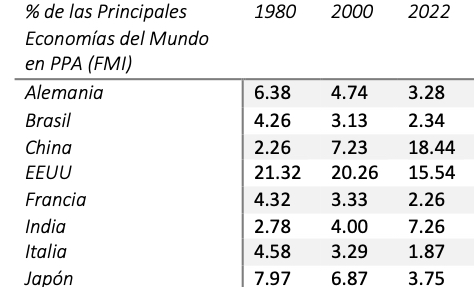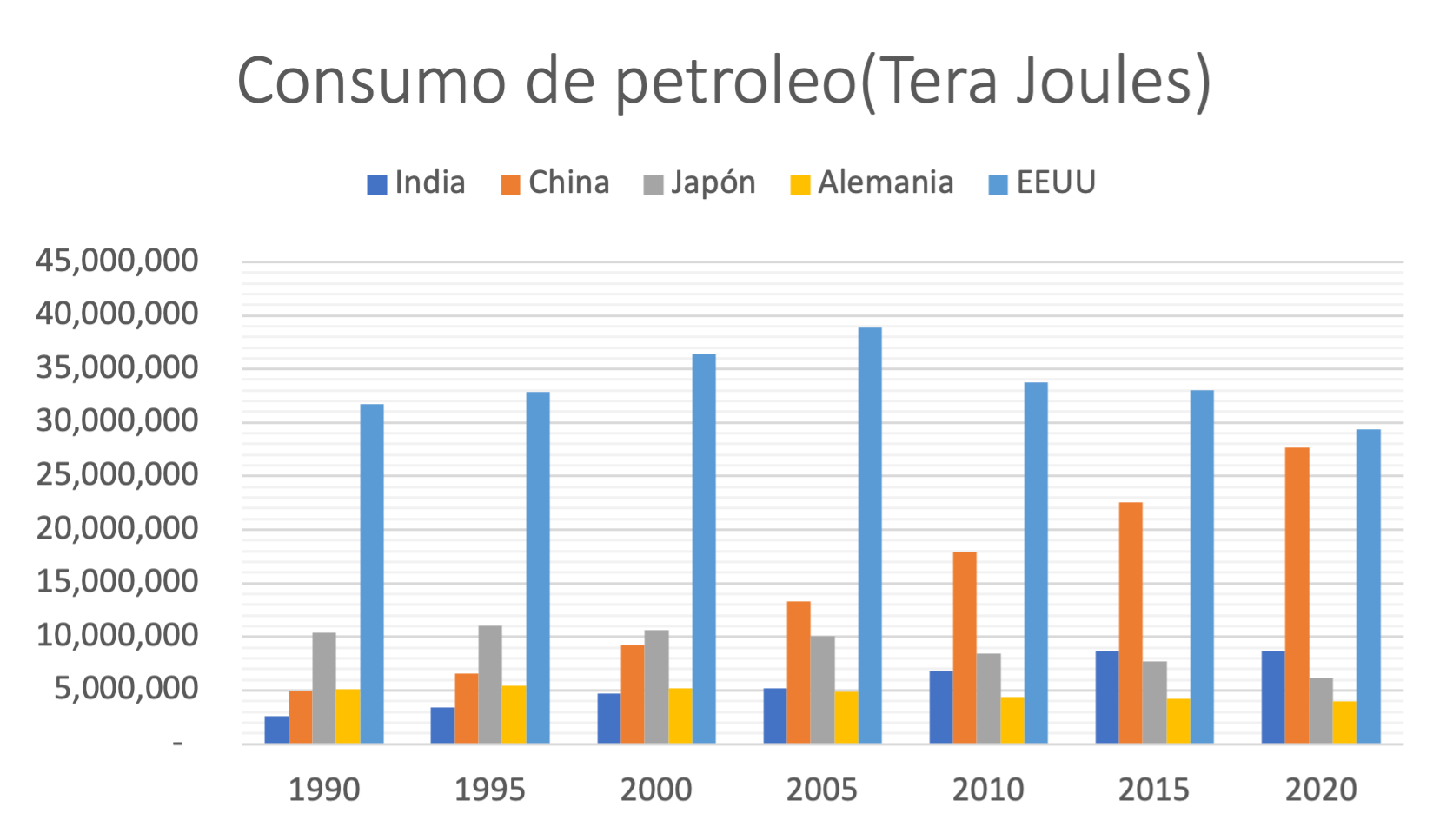According to the Western press, Germany is the main contender for the third position among the world's largest economies. However, according to the IMF, India currently holds that position and will maintain it for the coming years. What exactly makes this country a potential super-economy? It could perhaps be its high productive capacity, various global integration projects, or its significant domestic demand.

India is widely recognized as an emerging economy due to its rapid economic growth and increasing influence on the global economic stage. Some aspects include: population size, sustained economic growth, high-tech sectors, domestic consumption, industrial potential, and participation in international organizations. It has the world's highest GDP growth rate, although its GDP per capita grows less.
It is the world's second-most populous country, with over 1.3 billion inhabitants (November 2023). This population offers a massive internal market and significant potential for economic growth as the young population joins the workforce, leading to increased consumption. This is in the process of leading to a rapid growth of the middle class, accompanied by rising incomes. The outcome is an increase in demand for both public and private goods and services. The services sector, especially information technology and business process outsourcing, are significant pillars. Cities like Bangalore and Hyderabad have become crucial centers for the tech industry, attracting external capital such as the recent expansion of companies like Nvidia into India. This US-based company is a driving force in artificial intelligence.

India currently possesses a globally significant petroleum refining industry but primarily sells it domestically, unlike the US, which refines and exports the refined oil. As long as internal petroleum demand is limited by per capita income levels, coal usage will remain strong, followed by natural gas. It's noteworthy that since 2016, there has been a shift towards renewable energy. There is a gradual change in its energy matrix while exporting higher volumes of refined oil. It's the second-largest exporter of this energy source, just behind the US (Observatory of Economic Complexity). Its primary buyer is Singapore, followed by the United Arab Emirates. Its export matrix is highly complex, with oil accounting for only 12% of the total exports in 2022.
IMEEC
The so-called "true new Silk Road" for the US, India, and Israel is the India-Middle East-Europe Corridor. It consists of a network of land transport routes that go beyond mere cargo transport and refers to a deep economic partnership and cooperation among the countries involved in the project, including Saudi Arabia, the European Union, India, the United Arab Emirates, Israel, France, Germany, and Italy. Additionally, the US sponsors it as part of its competition with China. This project aims to boost the economic activity of all involved. It's assumed to benefit India on the import side and position it as a contender against China's Belt and Road Initiative (BRI), criticized by the West as a showcase of China's economic power and, according to the West, a threat to the World Order (Cvrk, 2023). India has limited trade with China despite being neighboring countries due to their long-standing rivalry.
This project carries the stamp of Washington's financing at a time when the US government faces significant difficulties in approving increasingly deficit-ridden budgets. It also has Israel's approval, now engaged in invading Palestine, making it a highly ambitious yet unlikely integration project. India seeks to improve its economic cooperation with the Middle East due to the long history of trade and cultural exchanges it has had with this region. This could have been a genuine regional unifier, but the conflict in Gaza has made it impossible. Currently (2023), the Israel-Hamasconflict casts doubt on the viability of the proposed projects outlined here and clouds its future. In face of its possible failure, Turkey has emerged and proposed its own economic corridor initiative along with Iraq and Syria, which promises to be cheaper and less susceptible to geopolitical conflicts. Above all, it has the characteristic of not carrying high American influence or seeking to compete with China's BRI but rather to join it.
India has become the world's fastest-growing country; however, there are factors that continue to impede its development, such as internal social conflicts, pollution from its increasing coal demand, and rapid population growth. Nonetheless, this project would ensure the provision of refined gasoline to Israel through a pipeline and generate more export income for the Asian country. However, geopolitical tensions with Muslim countries would need to be overcome before this could happen. It's striking that the announcement of the project at the United Nations General Assembly was made by the Israeli prime minister rather than the Indian prime minister. Equally notable is that this occurred just days before the onset of the conflict in Gaza.










